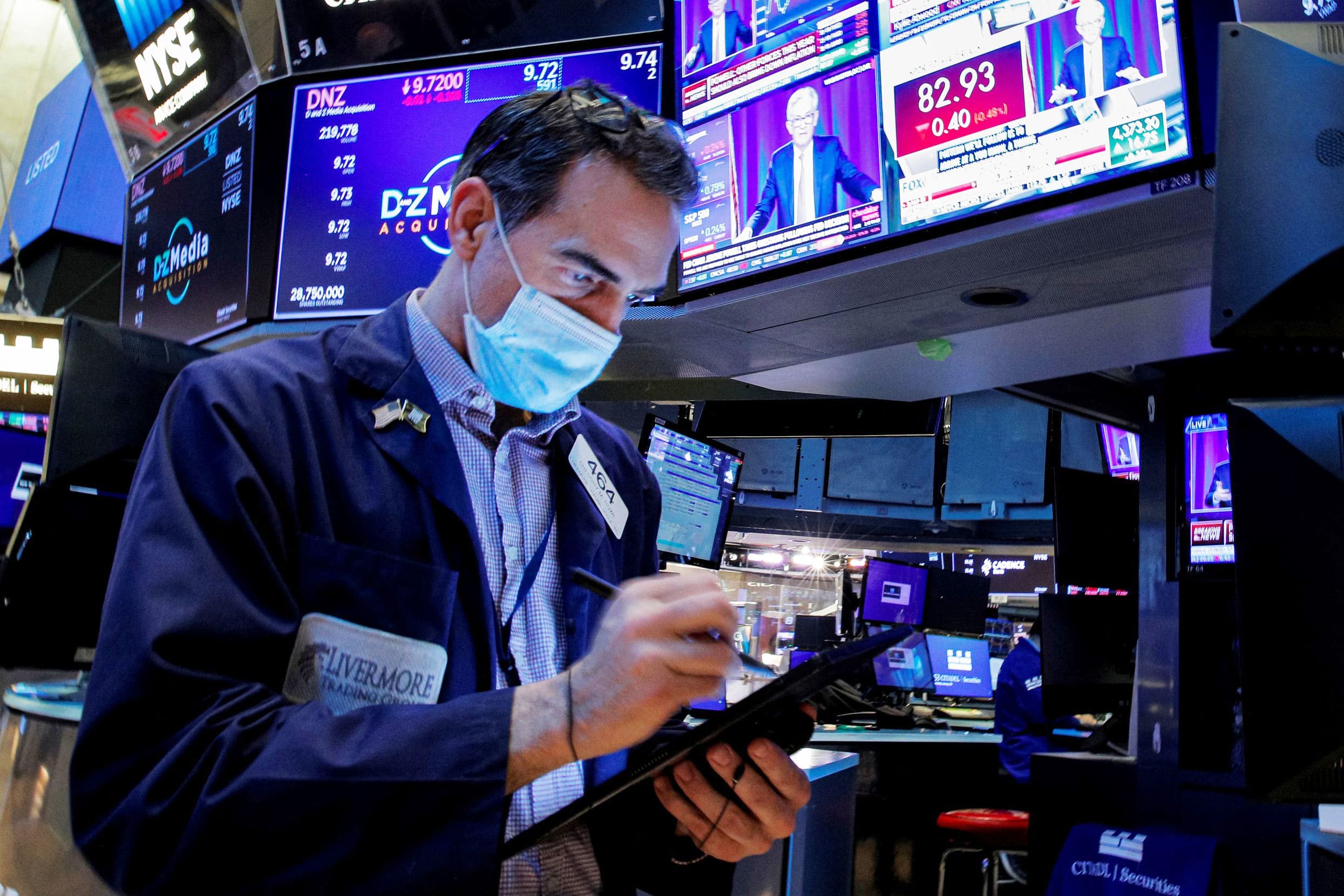10-year Treasury yield falls below 2% in volatile trading

U.S. Treasury yields ticked up on Friday, with the benchmark 10-year rate seen holding above the 2% level following the hottest inflation reading in four decades.
The yield on the benchmark 10-year Treasury note rose more than 1 basis point to 2.045%. The move comes shortly after the yield, which serves as a reference point for financial assets worldwide, climbed above 2% for the first time since August 2019 in the previous session. Yields move inverse to prices and a basis point equals 0.01%.
The 2-year yield, which saw its biggest one-day move since 2009 on Thursday, rose nearly 4 basis points to 1.586%
The yield on the 30-year Treasury bond, meanwhile, fell 2 basis points to trade at 2.28%.
The yield on the 2-year Treasury bond, the most sensitive duration to interest rates, was last seen trading at 1.61%. The 2-year surged 26 basis points at one point on Thursday, marking its biggest single-day move since 2009.
This comes after the Bureau of Labor Statistics reported on Thursday that the consumer price index had risen 7.5% in January from a year earlier, the fastest pace of U.S. inflation since February 1982.
“When the cliche ‘behind the curve’ is used to describe the current stance of the Federal Reserve, they are not even in the same state as the stadium in which the curve is being thrown at them,” Peter Boockvar of Bleakley Advisory Group, a long-time critic of the Fed’s approach to inflation, said in a note to clients.
The hotter-than-expected inflation reading prompted St. Louis Fed President James Bullard to call for accelerating rate hikes — a full percentage point increase by the start of July. However, other Fed officials have pushed back against the idea of a 50-basis point hike following the CPI report, according to reporting by CNBC’s Steve Liesman.
The futures market also repriced rate-hike odds as CME data pointed to a near-100% chance of a 50-basis-point increase at the March meeting, but that had retreated to about a 66% chance on Friday morning.
Jeffrey Gundlach, CEO of DoubleLine Capital, said on “Halftime Report ” that he didn’t think the bond market had moved enough for the Fed to feel comfortable making a 50-point basis hike in March but that he expected the central bank to hike rates higher than expected over the course of the the rate-hiking cycle.
“My suspicion is they’re going to keep raising rates until something breaks, which is always the case,” Gundlach said.
Elsewhere, the University of Michigan’s preliminary consumer sentiment reading for February came in at 61.7, falling from 67.2 the previous month and missing expectations.
— CNBC’s Yun Li contributed to this report.




